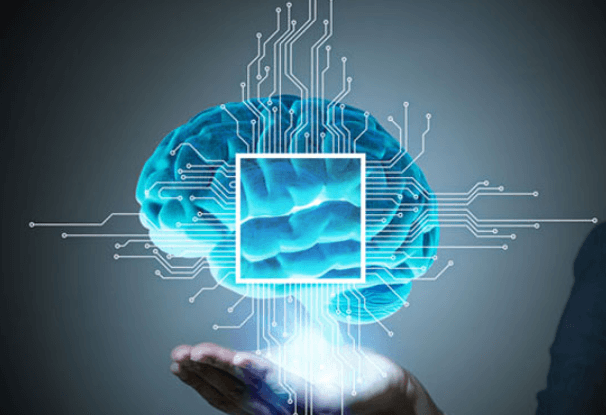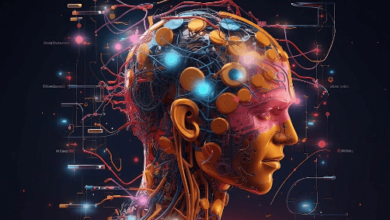AI-Driven Mental Health Solutions: Predicting and Preventing Crisis

As mental health concerns continue to rise globally, particularly in the wake of the COVID-19 pandemic, artificial intelligence (AI) is emerging as a powerful tool to address mental health challenges. AI-driven solutions are revolutionizing how we understand, diagnose, and treat mental health issues by providing new ways to predict and prevent crises before they escalate. From early detection of mental health disorders to personalized treatment plans and real-time crisis intervention, AI is transforming mental healthcare into a more proactive, precise, and accessible field.
The Growing Mental Health Crisis
Mental health disorders are a leading cause of disability worldwide, with over 970 million people affected by conditions such as anxiety, depression, and substance use disorders. Traditional approaches to mental health care have often relied on patients self-reporting their symptoms or seeking help only after a crisis occurs. This reactive approach can result in delayed interventions, exacerbating the severity of the condition. However, AI’s predictive capabilities offer an opportunity to shift from a reactive to a proactive model of mental health care, detecting potential crises before they occur and providing timely interventions.
See also: AI-Powered Creative Collaboration: A New Era for Art and Design
AI-Powered Mental Health Assessment and Prediction
One of the most promising applications of AI in mental health is its ability to analyze large datasets, such as medical records, social media activity, and even biometric data from wearables, to predict an individual’s mental health status. AI algorithms can identify patterns and early warning signs of mental health deterioration that might be overlooked by traditional methods.
For example, natural language processing (NLP) models can analyze patterns in a person’s speech or written communication to detect early signs of depression, anxiety, or suicidal ideation. By analyzing subtle changes in tone, word choice, and sentence structure, AI tools can predict mental health issues long before a crisis becomes evident. This is particularly useful for silent sufferers—those who may not outwardly express their struggles but whose digital footprints reveal significant mental distress.
Social media platforms like Twitter and Facebook have already begun to incorporate AI algorithms to monitor posts for signs of mental health crises. AI models can detect changes in language and behavior indicative of anxiety, depression, or suicidal thoughts. This kind of real-time monitoring allows for immediate intervention, connecting individuals with mental health resources or helplines before a crisis escalates.
Moreover, AI algorithms are now capable of analyzing data from wearable devices like smartwatches and fitness trackers, which monitor physiological signals such as heart rate variability and sleep patterns. These biomarkers can indicate early signs of stress, anxiety, or mood disorders. By correlating physical health data with mental health outcomes, AI can predict the onset of mental health crises and offer preventive solutions, such as recommending mindfulness exercises or alerting healthcare providers.
AI in Personalized Mental Health Care
In addition to predicting mental health issues, AI is also helping to deliver personalized treatment plans that are tailored to individual needs. Traditionally, mental health treatment has followed a one-size-fits-all approach, with standardized therapies that may not be effective for everyone. AI changes this by providing personalized mental health interventions based on an individual’s unique genetic, psychological, and behavioral profile.
Machine learning algorithms can analyze a patient’s history, lifestyle, and responses to previous treatments to determine which therapies or medications are most likely to be effective. For example, AI can predict how a patient might respond to different antidepressants based on genetic factors and past treatment responses, thereby reducing the trial-and-error process that often characterizes mental health treatment. This leads to more efficient and effective care, reducing the risk of adverse reactions and improving patient outcomes.
Chatbots and virtual therapists, powered by AI, are another innovative application providing personalized mental health support. These AI-driven tools can engage users in conversations, offer coping strategies, and provide therapeutic exercises based on the user’s emotional state. For instance, AI chatbots like Woebot and Wysa use cognitive-behavioral therapy (CBT) techniques to help users manage anxiety, depression, and stress. These platforms are available 24/7, offering immediate support and guidance to users who may not have access to traditional therapy services.
Crisis Prevention and Intervention
Perhaps one of the most critical roles of AI in mental health is its ability to predict and prevent crises, particularly for high-risk individuals. AI-powered systems can flag individuals at risk of suicide or self-harm by analyzing their behavior, both online and offline. For example, the Crisis Text Line uses AI to prioritize crisis counselor responses by identifying high-risk conversations based on specific keywords and phrases.
This predictive capability is especially valuable in settings like schools, workplaces, and military environments, where early intervention can prevent mental health crises. AI-driven mental health platforms can monitor users’ well-being over time and alert counselors, employers, or family members if signs of a mental health crisis are detected. In workplaces, AI tools can also help prevent burnout by monitoring employee stress levels and providing early interventions such as personalized wellness programs or breaks.
Challenges and Ethical Considerations
While the potential of AI in mental health care is immense, there are several challenges and ethical considerations that must be addressed. The privacy of data is among the most important issues.AI-driven mental health solutions often rely on sensitive personal information, such as medical histories, social media activity, and biometric data. Ensuring the privacy and security of this data is crucial to building trust in AI-powered mental health tools.
Another challenge is the potential for algorithmic bias. AI systems are only as good as the data they are trained on, and if the data reflects existing biases—such as racial or gender disparities in mental health diagnoses—AI models could perpetuate those biases. Ensuring that AI models are trained on diverse and representative datasets is essential for equitable mental health care.
Moreover, while AI-driven tools can offer valuable support, they should not replace human interaction in mental health care. AI is a tool to augment human therapists, not replace them. Ensuring that AI is used to complement, rather than substitute, traditional mental health services is key to delivering comprehensive care.
The Future of AI in Mental Health
The future of AI in mental health care is full of potential. As AI technologies continue to advance, we can expect even more sophisticated predictive models, capable of identifying mental health issues with greater accuracy and speed. Integrating AI with virtual reality (VR) and augmented reality (AR) technologies could create immersive therapeutic environments, providing new ways to treat conditions like PTSD, phobias, and anxiety.
Moreover, AI-driven mental health platforms are likely to become more accessible, with AI-powered mental health assistants integrated into smartphones, smart homes, and wearable devices. This will make mental health care more accessible to those who may not have access to traditional therapy, particularly in underserved areas.
In the long term, AI’s role in mental health care will likely expand to include predictive population health models, helping governments and healthcare providers anticipate mental health crises on a larger scale and allocate resources more effectively. By identifying patterns and trends in mental health across populations, AI can help shape public health policies and prevention strategies.
Conclusion
AI-driven mental health solutions represent a transformative shift in how mental health issues are detected, treated, and prevented. By leveraging AI’s predictive power, healthcare providers can intervene earlier, personalize treatments, and ultimately save lives. While challenges such as data privacy and algorithmic bias remain, the potential benefits of AI in mental health care far outweigh the risks. As AI continues to evolve, it promises to play a critical role in improving mental health outcomes worldwide, ushering in a new era of proactive, personalized, and accessible care.


